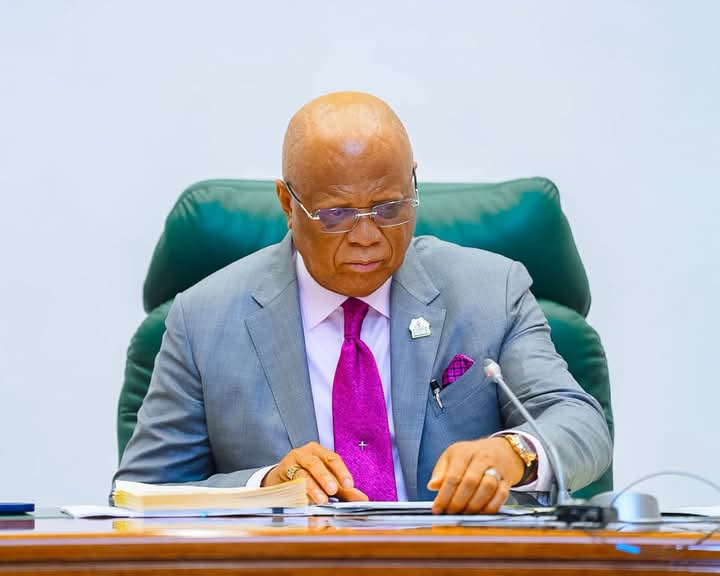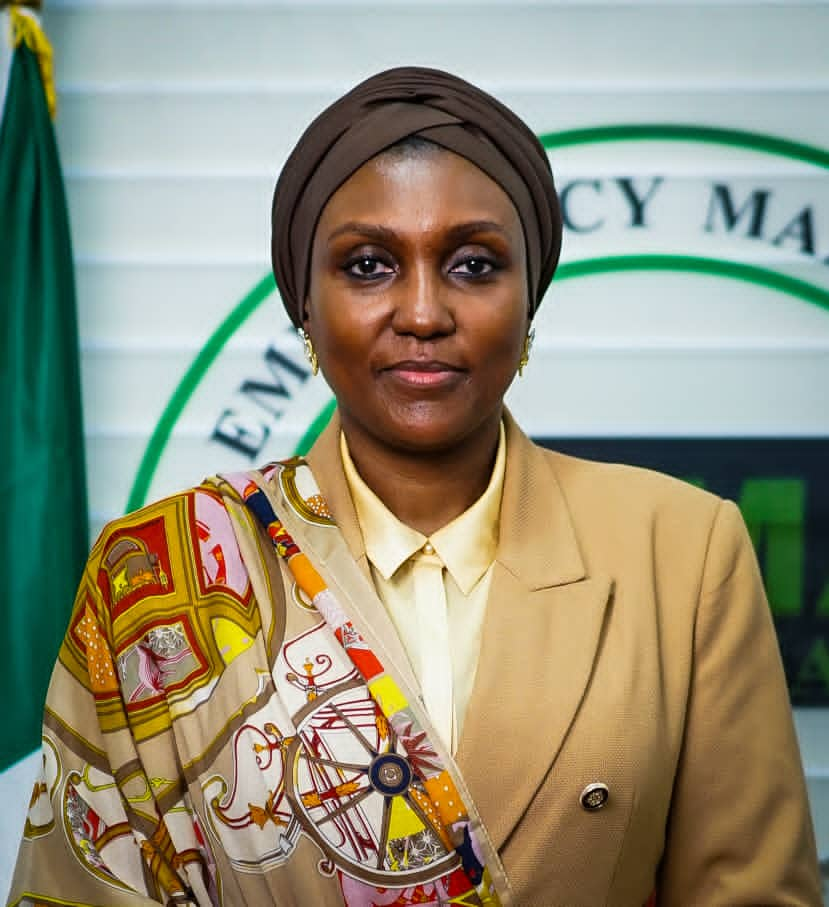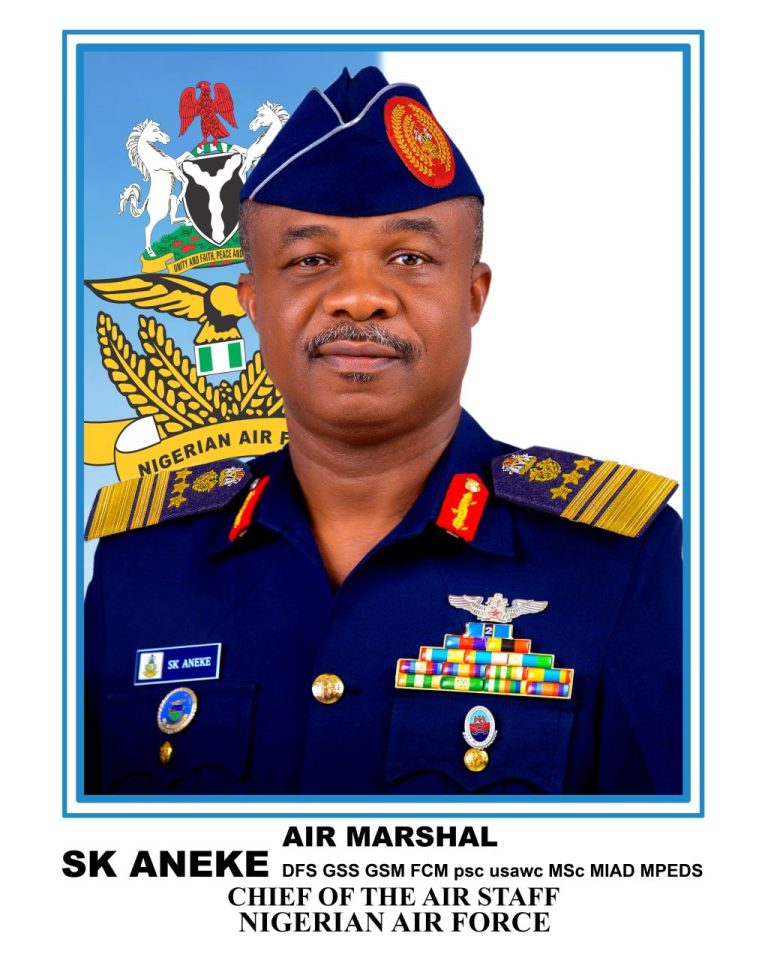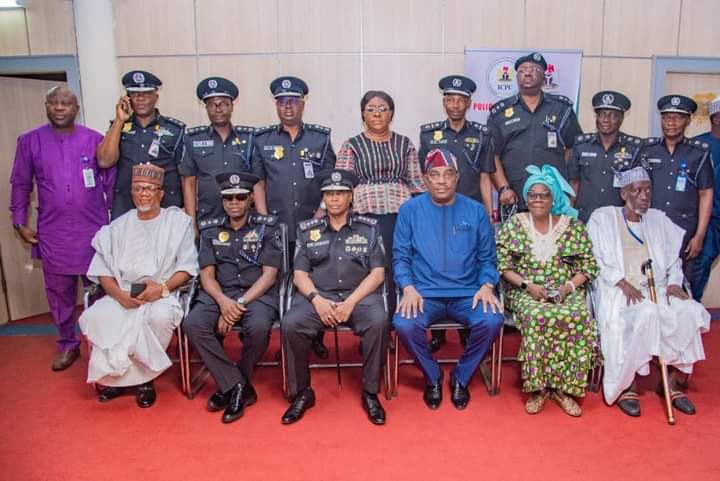

By Ikechukwu Ani
He made his name in the Nigeria Police Force where he rose to the zenith of his career and retired as the 18th Inspector General of Police to date one of the best the nation has produced even with his brief stay in Office.
He served while in the Force as Principal Staff Officer, PSO, to three different Inspectors General of Police, a position that exposed him to the dynamics and nuances of policing in different environments.
Dr. Arase is obviously the embodiment of the best the Force can offer in Nigeria, a nation battling with debilitating security challenges that have continued to defy immediate and long-term solutions. He is a well-grounded intelligence Officer, an acclaimed and celebrated international scholar, highly cerebral and detribalised.
His appointment and swearing-in as Chairman of the Police Service Commission, a federal Government Executive Body that is constitutionally empowered to appoint, promote, dismiss, and exercise disciplinary control over Officers in the Nigeria Police Force except the Inspector General of Police, on the 29th of March 2023 has since become a turning point in the lives of the Commission and the Nigeria Police Force. It was a time the Commission was gasping for breath, tormented in different directions including a protracted dispute with the Nigeria Police Force.
Dr. Arase admitted the enormity of the challenges facing him as he assumed office and declared “I arrived to chair the Board with understandable uncertainty, having been an onlooker to the squabble between the PSC and the NPF, I however entrusted myself into the hands of God and hoped that my experiential knowledge in life would be an advantage for me. I immediately emplaced measures and took steps towards resolving all lingering conflict and repositioning the Commission towards its optimal functionality in delivering on its mandate”.
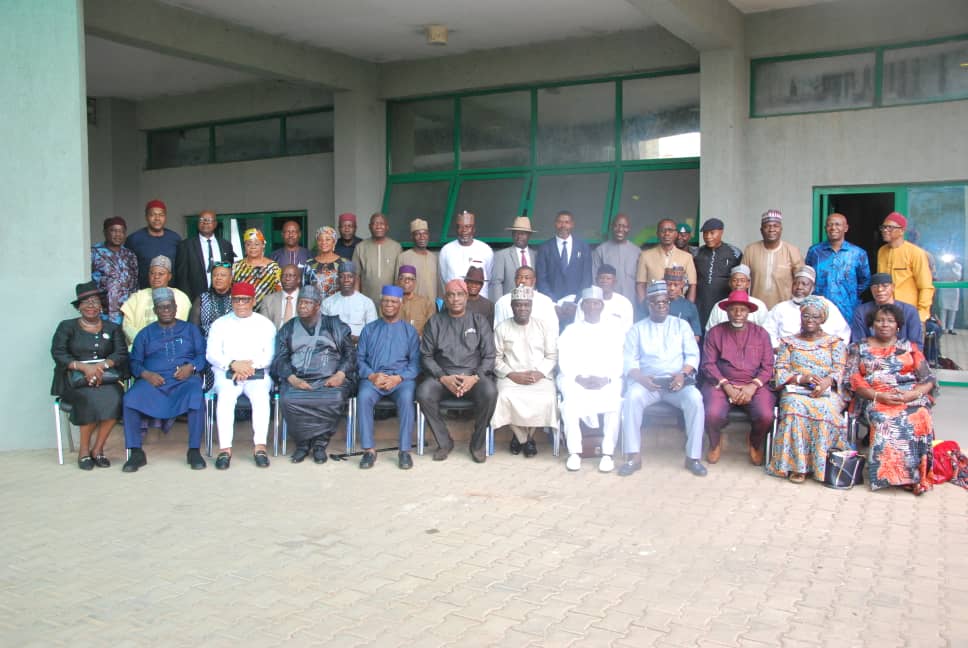
He started with a robust stakeholder consultative forum where he invited and/or visited several stakeholders in the Police sector. His first Stakeholders Meeting was with the National Leadership of the Police Community Relations Committee, PCRC, where he pledged to work in partnership with the Inspector General of Police to reinvigorate the Nigeria Police Force for better performance.
Dr. Arase told his visitors that for the Police to excel in its day-to-day operations, there must be consequences for misconduct and benefits for exemplary behaviour. He noted that benefits and burden must go together, stressing that he will strive to complement what the Police is currently doing to ensure that the operations of the Police must conform to its rules of engagement.
The PSC Chairman convened the maiden Retired Officers Consultative Forum where he declared that rescuing and repositioning the Nigeria Police Force was a collective task. He said the Forum is expected to avail retired Officers the needed opportunities and platform to give back to the Force and ensure “that the socio-political vagaries and contemporary societal complexities do not contain the Nigeria Police Force to a paper-tiger in the security architecture of Nigeria.
According to him; “I deemed it necessary to form a community of retired Police Officers named Retired Officers Consultative Forum that will act as a think tank for the Force and PSC, through dispassionate interrogation of issues, generation of ideas and proffering solutions on issues of security Sector Reforms”.
The Forum, Dr. Arase noted “aims at providing a veritable platform to the retired Officers to critically examine contemporary issues and challenges affecting the Nigeria Police Force and recommend pragmatic and actionable solutions and responses for optimal functionality of the Force in delivering on its mandate”.
He said the Forum will provide the opportunity to leverage “our experiential knowledge to advise the PSC and NPF on policies and measures that will not only ensure a harmonious working relationship between the two institutions but also reposition the NPF for greater efficiency and effectiveness in restoring its primacy in internal security in Nigeria.
The Chairman said the Forum will further serve as a platform for eliciting interest in the possible recruitment of members who are interested in participating as resource persons in the training programmes of the Commission.
He noted that the responsibility of rescuing and repositioning the NPF is a collective task that demands the participation and involvement of “our noble senior citizens, adding that the future of the Nigeria Police is threatened by the ever-changing socio-political dynamics of our country coupled with the exponential depletion of our experienced Officers and specialists through retirement”.
He continued his all-embracing advocacy Meetings with the stakeholders of the Commission with a visit to CLEEN Foundation, a civil society group promoting public safety and security and accessible justice in Nigeria, and also hosted the leadership of the Nigerian Union of Journalists.
At the CLEEN Foundation office, Dr. Arase declared that indiscipline will no longer be tolerated in the Nigeria Police Force while announcing the setting up of the Compliance Monitoring Unit (CMU) at the Commission to monitor and police the police. He insisted that a Police Force that does not connect with the public or respect human rights will find it difficult to succeed.
Speaking when he received the leadership of the Nigeria Union of Journalists, NUJ, led by its National President, Chief Ikeddy Isiguzo, the Chairman observed that the nation was going through a transformation in all sectors with worldwide security challenges which he said has imposed an additional burden on the nation to cope with rising criminality and divisive forces. These, he noted required the synergy of all stakeholders to enable the nation to navigate through these trying times effectively.
The Chairman also received a delegation of the UNDP and the German Government where he canvassed for funding support and productive partnership in improving policing in Nigeria in line with the on-going Police Reforms.
The Chairman who was represented by Justice Clara Bata Ogunbiyi, CFR, retired Justice of the Supreme Court said it has been difficult to oversight the Police with the myriads of challenges facing the Commission. She solicited the assistance of the Organization and the German Government in some areas that will help the Commission rebuild the Nigeria Police Force for better performance.
Dr. Arase also met with Beatrice Eyong, Country Representative to Nigeria and ECOWAS of the United Nations Women where he pledged the Commission’s commitment to restore the dignity of Police women.
The Chairman who visited the Nigerian Office of the United Nations admitted that discrimination against women including Police women was real and said the Commission needed strategic partnership with the world body to improve the welfare and self-worth of the Nigeria Police women.
He disclosed that the Commission under his watch will ensure a recruitment policy redirection that will see more women into the Nigeria Police Force so that they could compete favourably for management positions in the Force.
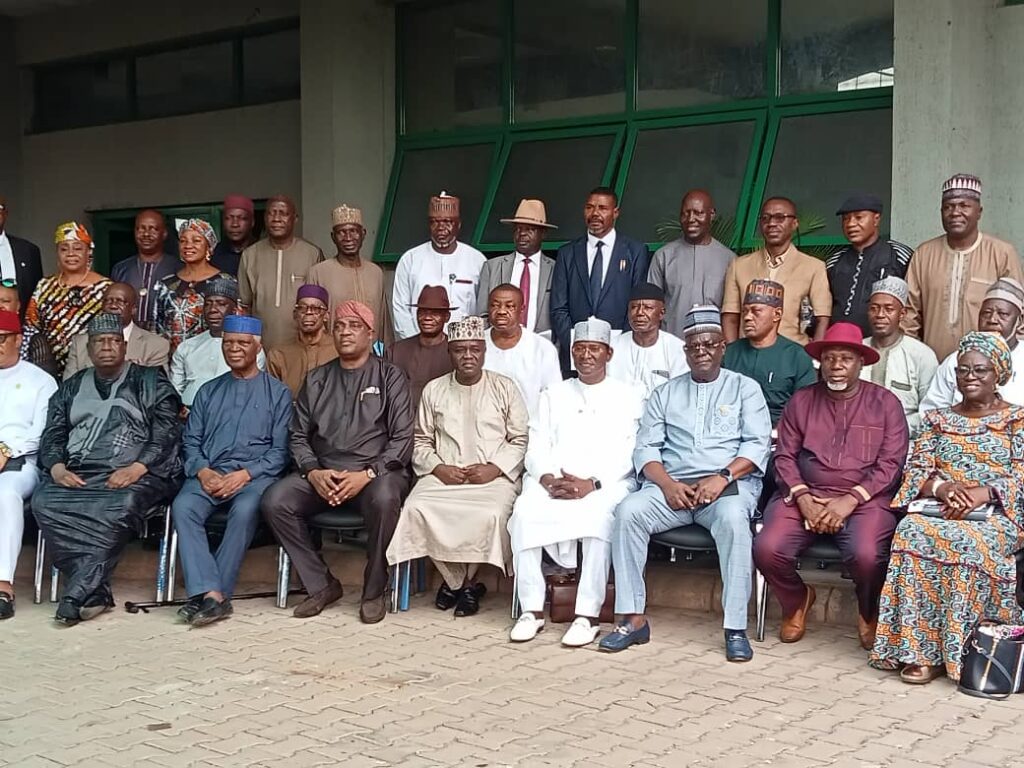
He also met with delegations from the Public Service Institute of Nigeria and the National Examination Council, two rated Nigerian training and examination institutions. He bemoaned the lack of capacity in the Commission and the Nigeria Police Force and vowed to close the capacity gaps in the two Government Agencies. He extended a hand of fellowship to the Management of the two training and examination institutions so as to quickly fix these gaps in the interest of viable and efficient policing in Nigeria as according to him, the Police, lead Agency in internal security and its oversight body, the PSC should not be allowed to lack capacity, especially at this critical period of nation building.
The Commission has since started to enjoy the dividends of the stakeholders’ advocacy meetings as four directors in the Commission have concluded a one-week international training on accountable policing oversight and criminal justice. The four Directors were exposed to an intensive one-week training organised by the Centre for Human Rights, University of Pretoria, South Africa in conjunction with the African Policing Oversight Forum. They joined 81 others from 21 countries to undergo the training where they were acquainted with topical issues such as international and regional human rights standards relevant to policing and the criminal justice system.
Dr. Arase has also since moved to reform both the Nigeria Police Force and the Commission. The Commission under his watch has approved policy guidelines on the deployment of AIGs, CPs Tactical Commanders, and gender sensitivity in such deployments.
It stated that the Nigeria Police Force should be guided by the principle of Federal Character in both recruitment (at all levels) and deployment of its personnel at management and tactical levels to ensure balance, equity, and fairness in the system.
As of today, Nigeria has two female State Command CPs, one in Ebonyi State and the other in Kwara State. There is also for the first time an Assistant Inspector General of Police in charge of Maritime Command.
Barely four months in office, Dr. Solomon Ehigiator Arase has invented a new and progressive management of Policing in Nigeria that meets international standards and in obedience to the rule of law. He has already declared that he will make the Police job attractive once again.
According to him “I am building a new Police Force that will once again be attractive to the Nigerian youths. I have succeeded in creating a cordial working relationship between the Commission and the Nigeria Police Force where both parties now work not to compete but complement each other. There is no respect for the clearly defined responsibilities of the two Institutions and they now operate with mutual respect and shared vision.
“I have also made a success of my stakeholders’ conversations immediately on assumption of duty and I am happy that I have united the Civil Society Organizations in support of the Commission and the Nigeria Police Force. I engaged international donor Agencies and other Stakeholders in the Police Sector to assist build the capacity of the Commission as an oversight body and that of the Police as the lead Agency in internal security. “I can report that I am getting listening ears and making a lot of progress; the Police we are building will surely be a pride of the nation”.
He has since ensured that promotions in the Commission are regular and based on merit, seniority, and availability of vacancy. He insists that the Commission will continue to hold Police Officers accountable for their conducts/misconducts and will ensure that Pending Disciplinary Matters will receive the Commission’s urgent attention at all times so that Officers are not unduly stagnated. He has pledged to continue to give inspiring leadership that will attract commensurate commitment and dedication to duty by the Officers.
**Ikechukwu Ani is the Spokesman of the Police Service Commission and writes from Abuja.


